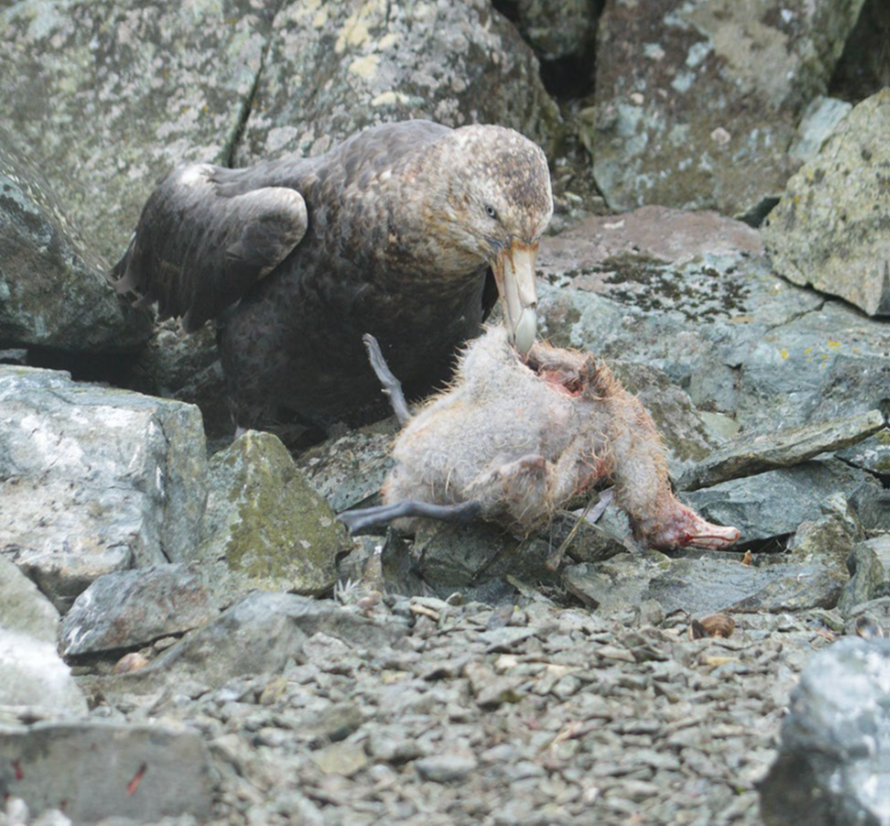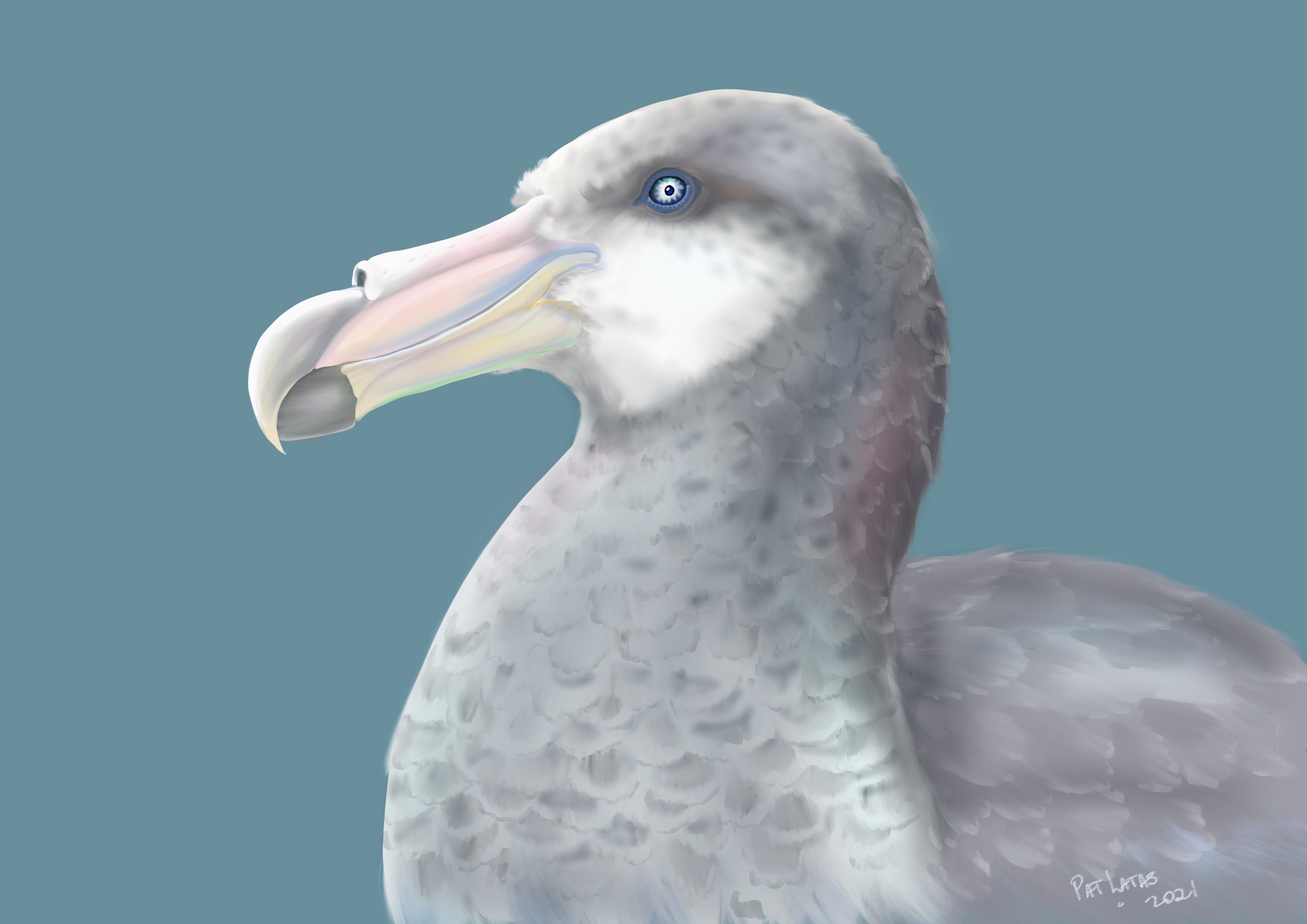Southern Giant Petrel by Pat Latas, from a photograph by Michelle Risi
Júlia Victória Grohmann Finger (Laboratório de Ornitologia e Animais Marinhos, Universidade do Vale do Rio dos Sinos, São Leopoldo, Brazil) and colleagues have published in the journal Polar Biology on two instances of cannibalism by male Southern Giant Petrels on the Antarctic Peninsula.

A male Southern Giant Petrel feeds on a conspecific chick after removing it from its nest, from the publication
The short note’s abstract follows:
“Southern giant petrels (Macronectes giganteus) are a scavenger and predatory species with highly opportunistic feeding habits. Although cannibalism is a likely behavior for a predatory and colonial species, there are no confirmed records of this behavior for giant petrels. In this study, we describe two cases of cannibalism in a population of southern giant petrels breeding at Harmony Point (62°18′S; 59°10′W), Nelson Island. In both cases, a male giant petrel preyed upon a nestling. Our records confirm that heterocannibalism is part of the behavior repertoire of male southern giant petrels.”
With thanks to Janine Dunlop, Niven Librarian, FitzPatrick Institute, University of Cape Town.
Reference:
Grohmann Finger, J.V., Corá, D.H., Petry, M.V. & Krüger, L. 2021. Cannibalism in southern giant petrels (Macronectes giganteus) at Nelson Island, Maritime Antarctic Peninsula. Polar Biology doi.org/10.1007/s00300-021-02859-8. Scroll down on the reference to watch a short video of cannabalistic feeding.
*Raffish: “unconventional and slightly disreputable, especially in an attractive way”.
John Cooper, ACAP Information Officer, 20 May 2021

 English
English  Français
Français  Español
Español 